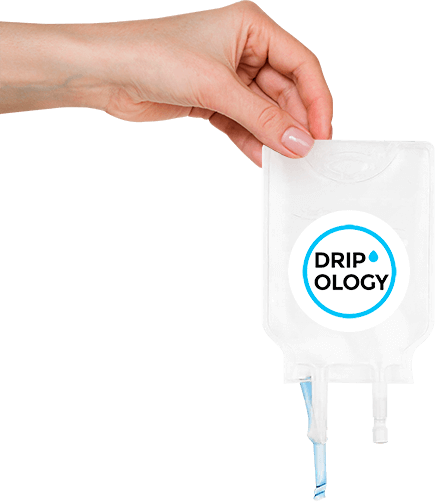What is Crohn’s disease?
Blog about Crohn's Disease!

Crohn’s disease belongs to a group of conditions known as inflammatory bowel diseases, or IBD and named after Dr. Burrill B. Crohn, who first described the disease in 1932.
It is a chronic condition characterized by inflammation in the Gastro intestinal or G.I. tract which is also known as the digestive tract.
The symptoms of Crohn’s disease often develop gradually. Certain symptoms may also become worse over time. Although it’s possible, it’s rare for symptoms to develop suddenly and dramatically. The earliest symptoms of Crohn’s disease can include:
-Fever
-Fatigue
-Diarrhea
-Abdominal cramps
-Blood in your stool
-Loss of appetite
-Weight loss
-Feeling as if your bowels aren’t empty after a bowel movement
-Feeling a frequent need for bowel movements
Research studies continue to show a rise in the number of people living with inflammatory bowel disease (IBD), reflecting a need for more research to find a cure.
-Approximately 1.6 million Americans currently have IBD, a growth of about 200,000 since the last time CCFA reported this figure (in 2011).
-As many as 70,000 new cases of IBD are diagnosed in the United States each year.
-Inflammatory bowel diseases (IBD), which include Crohn’s disease and ulcerative colitis, affect as many as 1.6 million Americans, most of whom are diagnosed before age 35. These chronic, life-long conditions can be treated but not cured.
-IBD can significantly affect a patient’s quality of life and may have a high financial burden.
-The symptoms of IBD vary from person to person, may change over time, and can range from mild to severe. People with IBD often go through periods when the disease is quiet with few or no symptoms (remission), alternating with times when the disease is active and causing symptoms (flares).
Living with a chronic condition can be overwhelming. Since Crohn's disease cannot be cured, medications such as steroids and immunosuppressants are used to slow the progression of disease.
If these aren't effective, a patient may require surgery. Additionally, patients with Crohn's disease may need to receive regular screening for colorectal cancer due to increased risk.
What causes Crohn’s disease?
It isn’t clear what causes Crohn’s disease. However, the following factors may influence your chances of developing it:
-Immune system
-Genetics
-Environment
Up to 20 percent of people with Crohn’s disease also have a parent, child, or sibling with the disease, according to the CCFA.
If you have Crohn's disease, you probably have found that certain foods trigger your intestinal symptoms, especially when the disease flares. Learning to avoid these food triggers may allow you to better self-manage your Crohn's disease, reduce gastrointestinal symptoms, and promote intestinal healing.
This is even more important when you have a flare-up of your Crohn’s symptoms. Spicy or greasy foods, whole grains, high-fiber fruits and vegetables, nuts and seeds, caffeine, and alcohol can all be harder on your body during a flare-up.
Many patients with Crohn’s disease have problems absorbing nutrients and are chronically low in
-B-12
-B-9 (Folic acid)
-Sodium
-Magnesium
-Zinc
-Vit D
-Iron
-Potassium
-Phosphorus
39% of IBD patients are known to be micronutrient deficient and are known to be anemic due to malnourishment, nausea, vomiting, bleeding in the GI tract and malabsorption.
At Dripology we help many patients struggling with Crohn’s flare ups to ease their symptoms by hydrating their system and replenishing depleted nutrients by skipping the digestive tract completely and allowing patients to live more comfortably.
IV hydration instantly revives the entire body and we include specific additives to optimize your body on a cellular level.
Vitamin C is especially beneficial when you are experiencing high levels of stress, feeling fatigued, or when your immune system needs a jump start to fight acute or chronic viral and bacterial infections.
IV Vitamin C is has anti-inflammatory affects and helps ease IBD and is also essential for tissue repair and wound healing.
Magnesium is a smooth muscle relaxer and has been well studied for its anti-inflammatory effects on the body and is needed to help in the metabolism and activation of Vitamin D so that it can be used by the body. ⠀
Correcting a magnesium deficiency can help your body function more efficiently and help normalize your metabolism, ease cramps and help with quality of life when dealing with Crohn’s.
B12 is a water-soluble vitamin that is vital to improving energy and enhancing the metabolism of every cell in the body.
‘B-complex’ is an addictive that delivers eight crucial other B vitamins: B1 (thiamine), B2 (riboflavin), B3 (niacin), B5 (pantothenic acid), B6, B7 (biotin), B9 (folate), B12. These B vitamins help the body to produce energy, protect the immune system and help the body break down fats and carbs for energy and promotes healthy skin as nail with the capacity to reduce signs of skin aging such as redness, wrinkles, and skin spots.
Because no one has zinc storage systems in their body, intravenous zinc therapy is necessary to supplement zinc levels and prevent deficiency. It plays an essential role in hormone production, immunity, digestion, growth and cell repair.
As you can see this custom drip was specifically designed to help ease symptoms associated with Crohn’s Disease and IBD and is available on-demand with our mobile delivery service.
So you don’t even have to leave your house, wait in line or expose yourself to other possibly sick people.
While there is no cure for these diseases patients shouldn’t have to suffer!
With just one call/click we can help you get back to living your best life.
Tags
More News
All News
Special Offers & Updates
Subscribe now for Dripology news, including future promotions and more!
